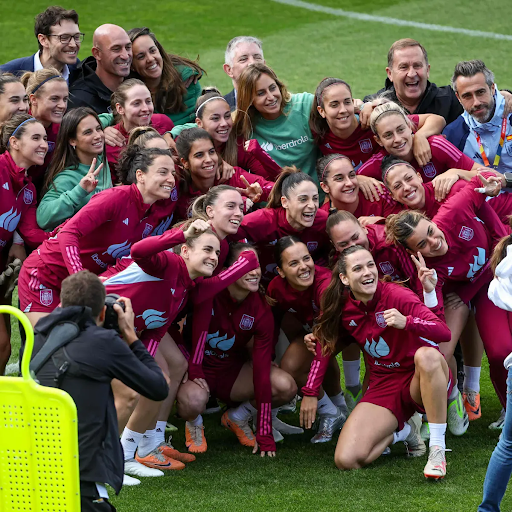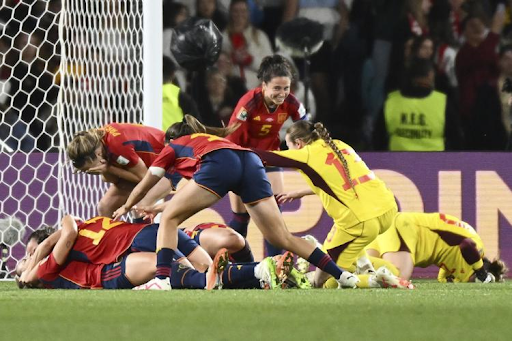
England’s quest for their inaugural Women’s World Cup title remains unfulfilled as Spain emerged triumphant in the final clash held in Sydney. The Lionesses, aiming to replicate the historic achievement of the men’s team in 1966, faced heartbreak as a vibrant Spanish team outplayed them with flair and creativity.
Amid tears and disappointment, England’s players knelt in defeat at the final whistle while Spain celebrated their victory. The turning point came in the 14th minute of nerve-wracking stoppage time, when Spain managed to thwart England’s last-ditch corner kick, sealing their win.
Spain’s captain, Olga Carmona, capitalized on an opportunity created by England’s Lucy Bronze losing possession in midfield and slotted in the winning goal in the first half. Despite England’s efforts, which included introducing substitutes Lauren James and Chloe Kelly, Spain maintained control over the match.

Mary Earps, who had been awarded the Golden Glove for her goalkeeping excellence during the tournament, made several impressive saves, including a pivotal penalty stop against Jenni Hermoso. However, it wasn’t enough to change the outcome for England.
Sarina Wiegman, the England manager who suffered her second successive World Cup final loss, expressed her frustration, while Lucy Bronze reflected on the disappointment, stating, “I am proud of what we have achieved, but I think everybody that knows me, knows that I only like gold medals.”
Spain’s victory was a significant triumph as they managed to secure their first-ever Women’s World Cup title, overcoming internal challenges and controversy leading up to the tournament. The win might reshape the landscape of women’s football in Spain and leave a lasting impact on the sport’s development in the country.
As England’s Lionesses process their heartbreak, Spain’s success serves as a testament to their determination and talent. The clash between the two teams highlighted the unpredictable nature of sports and the emotions that come with such high-stakes competition.





